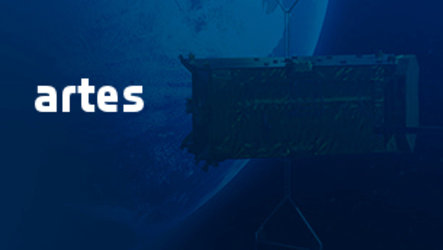First Spacebus Neo service module assembled
On 27 December 2018, Thales Alenia Space assembled the avionics and Xenon propulsion modules to form the service module of the first Spacebus Neo satellite, KONNECT, a high throughput satellite ordered by Eutelsat.
The avionics module was built in Thales Alenia Space (TAS) facilities in Cannes and houses all the functions required to power, control and monitor the satellite.
The Xenon propulsion module (XPS) was assembled in Belfast by Thales UK and shipped to Cannes in the week before Christmas. It is the structural backbone of the satellite and contains the electric propulsion system to both raise the satellite to its operational orbital position and keep it in place during its 15 years of operational lifetime.

The resulting service module makes a perfect space vessel for the telecommunications payload, which will be installed onto it, fully tested, and then launched into space. After reaching its final geostationary orbit, the satellite will provide telecommunication capabilities customised to satisfy the requirements of the operator.
Substantial schedule gains can be achieved thanks to the parallel production of these modules. In fact, lead time is an important decision factor when operators have to select the manufacturer of a satellite amongst various competitors.
Through an innovative design and optimised industrial flow, the service module is standardised and can handle launch masses in the range of 3 to 6 Tons with minimal adaptation.
This service module packs the latest state-of-the-art equipment from all over Europe, with Spacebus Neo key technologies developed in France, UK, Austria, Belgium, Czech Republic, Germany, Ireland, Italy, Luxembourg, the Netherlands, Poland, Portugal, Romania, Spain, Sweden and Switzerland.
The assembly took place a few weeks after the successful qualification testing of the satellite structure by RUAG in Zurich, which fully validated the mechanical design.

The KONNECT satellite will allow the in-orbit validation of the complete end-to-end system of the new Spacebus Neo product line, including the fully electric orbit-raising phase.
Stéphane Lascar, Head of Telecommunications Satellite Programmes Department in ESA said: “We are extremely pleased with the excellent results of our Partnership Programmes, like Neosat. The results and feedback received from all parties is a demonstration of the continued trust that space industry, operators and national ESA delegations place in ESA for managing large-scale partnership programs. The involved European industrial partners benefit from maximised returns and opportunities resulting from the efficient co-management of the Partnership Programmes, tailored to commercial best practices.”
Philippe Nabet, Thales Alenia Space Director of the Spacebus Neo product line said: “The Neosat partnership programme has allowed us to develop our Spacebus Neo product line and its European supply chain. Thanks to Neosat we have been able to sell four satellites so far, and we are counting on many more in the years to come. But we cannot stop here. The market requires further evolutions of our products and we are looking forward to the continued support from ESA and our national space agencies to federate European industry around new large scale programmes achieving competitive leap forward and economical impacts.”

Jean-Pierre Diris, CNES Head of the Telecommunications and Navigation Department, said: “Since decades Spacebus product line has been a great success, with continuous support from CNES both for commercial missions and dual use missions. The Spacebus Neo new generation provides a full electric capability which enables increased capacities at lower costs. This program funded by CNES, PIA (Plan d’Investissement d’Avenir) and ESA is now entering in its final phase for first flights very soon realised for major commercial operators and French government.”
Christophe Duchêne, Eutelsat Programme Director, said: “This important milestone of the Neosat programme confirms the schedule towards the launch of our KONNECT satellite in late 2019. KONNECT will also pave the way for our upcoming KONNECT VHTS satellite, due to be launched in 2021, as both satellites will use the same industrial approach based on the Spacebus Neo electric propulsion platform. We are delighted to be working so closely with our partners on the development of this platform that will reinforce our leadership in the use of electric propulsion for geostationary communication satellites.”
The Neosat programme
The new Spacebus Neo product line is developed in the frame of ESA's Advanced Research in Telecommunications Systems (ARTES) programme, in cooperation with space agencies from ESA Member States, and managed jointly by ESA and CNES.
The Neosat programme comprises both Spacebus Neo by Thales Alenia Space and Eurostar Neo by Airbus Defence and Space. It includes development up to in-orbit validation of the new satellite product lines for both companies, allowing European industry to deliver competitive satellites for the commercial satellite market.





